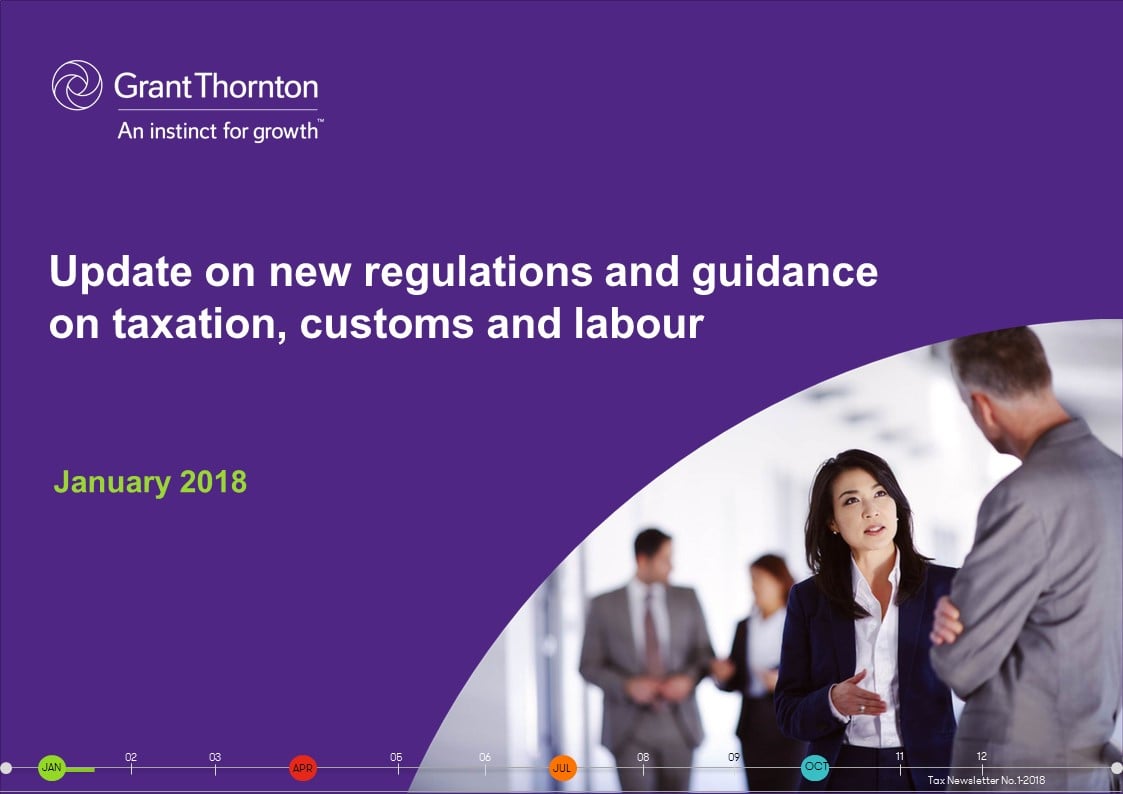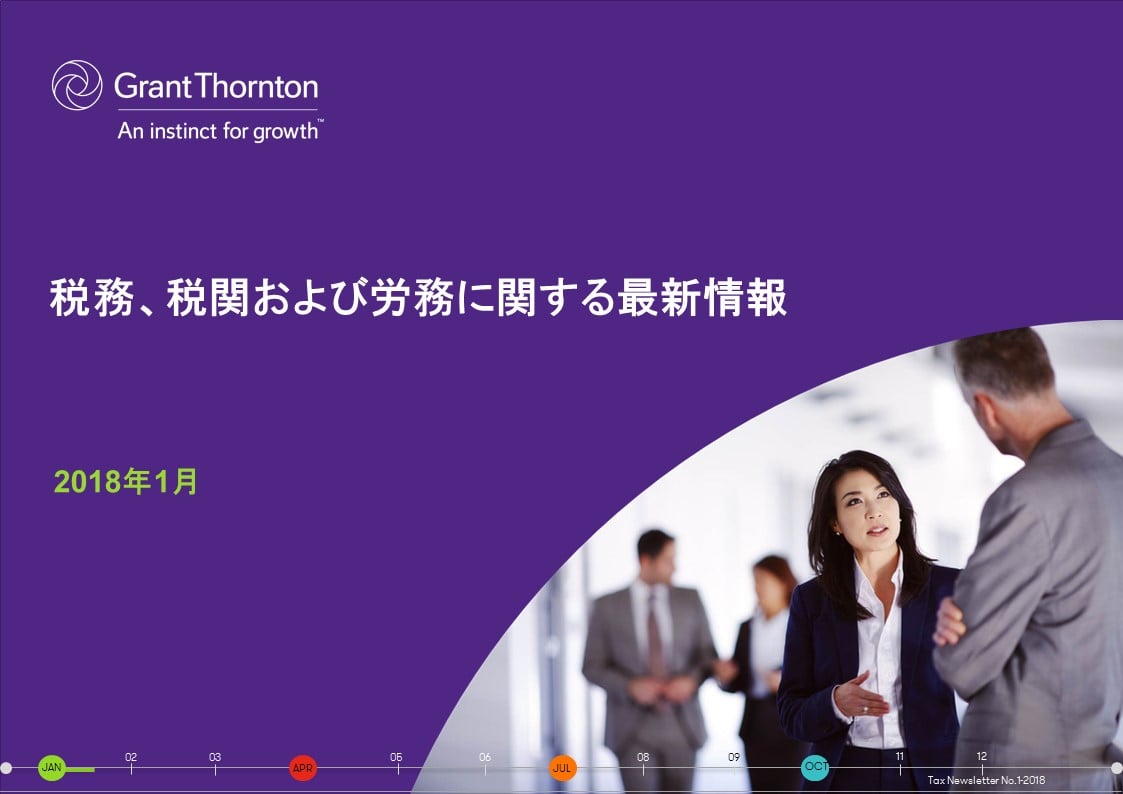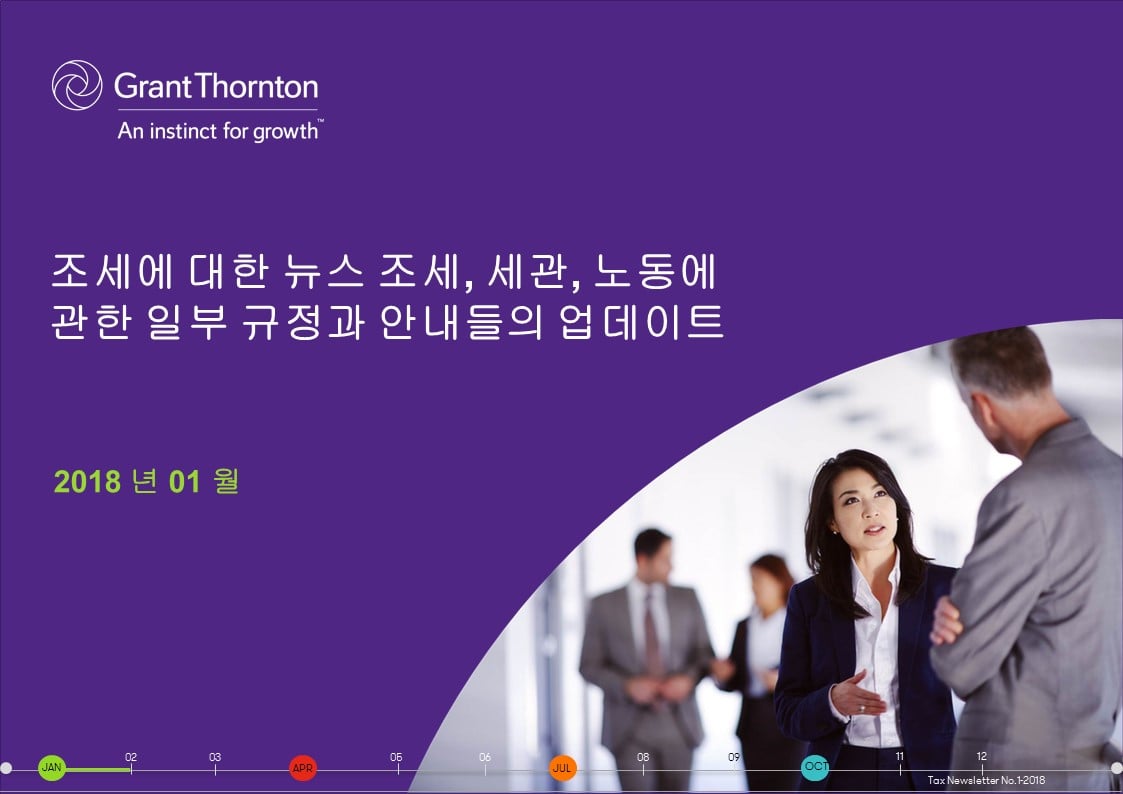-
International Financial Reporting Advisory Services
IFRS reporting advisory serivces of Grant Thornton are carried out by our dedicated team with expertise in IFRS implementation.
-
Audit Services
• Statutory audit • Review of financial statements and financial information • Agreed-upon procedures • FRAS services • Compilation of financial information • Reporting accountant • Cross-border audit • US GAAP audit
-
Audit Quality
We have various methods of monitoring our system of quality control and engagement quality, including real-time involvement of coaches and national office personnel on select audit engagements, reviews of issuer audit engagements prior to archiving by someone outside of the engagement team, and internal inspections of assurance engagements and the system of quality control.
-
Audit Approach
Audit Approach
-
Licensing services
Licensing services
-
International tax planning
Our extensive international network provides us with significant resources to meet all your expansion goals. We strive to develop commercially focused and tailored tax strategies to minimise tax exposures and maximise business efficiency.
-
Expatriate tax planning
We have a broad knowledge base and skills to assist you keep your personal income taxes to a legitimate and reasonable level, while remaining compliant with legislation. We can develop a personalised package for each key employee to take maximum advantage of the exemptions and incentives available.
-
Tax advisory
We will review the proposed business model and transactions and advise on tax implications and recommendations to optimize the tax opportunities under the local regulations and treaties which Vietnam entered into. Furthermore, we coordinate with our GT global tax team to provide a comprehensive tax advisory for the countries involved in the business model and transactions.
-
Tax compliance services
This service is designed to assist enterprises to cope with the statutory tax declaration requirements in line with the Vietnamese tax laws as well as the frequent changes and updates in tax laws.
-
Tax health check
Our Tax Health Check involves a high-level review of specific tax areas to highlight the key issues that need to be rectified in order to reduce tax risks. Through our extensive experience, we have identified key risk areas in which many enterprises are not fully compliant or often overlook potential tax planning opportunities. Our tax health check service represents a cost-effective method to proactively manage risks and reduce potential issues arising as a result of a tax inspection.
-
Transfer Pricing
Transfer pricing is a pervasive tax issue among multinational companies. In Vietnam, the tax authorities require special documentation to report related party transactions. Compliance with transfer pricing regulations is an important aspect of doing business effectively in Vietnam as failure to do so may result in significant penalties.
-
Tax due diligence
We conduct tax due diligence reviews of target companies to analyse their tax exposure and position in relation to acquisitions, mergers or consolidations. We are able to integrate this service with our Advisory Services department in order to offer a comprehensive, holistic due diligence review.
-
Customs and international trade
Our experienced professionals can help you manage customs issues more effectively through valuation planning and making use of available free trade agreements. We also assist Clients in optimising their customs procedures by making use of potential duty exemptions and efficient import-export structures. Risk mitigation activities include customs audit defense and compliance reviews.
-
M&A Transaction
We advise numerous foreign investors on efficient tax structures for their investments. Our experience allows you to consider all the options and set up a corporate structure that meets both operational and tax efficiency requirements. In short, the structure that is best for you.
-
Industrial Zones – Picking A Location For Your Business
Grant Thornton Vietnam’s one-stop services are designed to provide comprehensive support to both new and current investors who are planning to expand or restructure their business in Vietnam. Our professionals have established strong working relationships with landlords, property developers and authorities at various localities. With extensive experiences in liaison with the relevant agencies, we offer assistance including negotiation on land rental rates and efficient management of licensing process. Our customized and flexible solutions can bring benefits of cost efficient location, accelerate licensing process, and optimize tax opportunities while remaining in compliance with legislation.
-
Tax Audit Support
Tax audit support services provide comprehensive assistance to your business in Vietnam. Recent tax practices have shown the general tendency of launching routine tax audit on yearly basis. Tax authorities have been effectively using more sophisticated methods to identify target entities from across different industry sectors.
-
Business Risk Services
Business Risk Services
-
Transaction Advisory Services
Transaction Advisory Services
-
Valuation
Valuation
-
Business consulting services
Finance Management Advisory
-
Accounting services
Accounting services
-
Taxes compliance within outsourcing
Taxes compliance within outsourcing
-
Payroll, personal income tax and labor compliance
Payroll, personal income tax and labor compliance
-
Secondments/Loan staff services
Secondments/Loan staff services
-
Compilation of the financial and non-financial information
Compilation of the financial and non-financial information
-
Accounting systems review and improvement
Accounting systems review and improvement
-
Initial setting-up for accounting and taxes systems
Initial setting-up for accounting and taxes systems
-
Management accounting and analysis
Management accounting and analysis
-
Comprehensive ERP system solution
ERP software is a tool for business operations, production management, order processing and inventory in the business process. Today, ERP software for small and medium businesses has been greatly improved to help businesses manage their business better. The article below will answer all relevant information about what ERP software is and offer the most suitable ERP solution for businesses. Let's follow along!
-
Analyze Business Administration data
We believe in the value that data can bring to the success and development of every business. Our team helps design data architecture supported by tools, to support business governance and provide useful information to management.
-
Financial reporting compliance solution package
Putting financial issues at the heart, this service helps ensure that financial reports for customers comply with both the requirements of Vietnamese accounting regulations and standards (VAS) as well as reporting standards. international finance (IFRS).
-
Third-party ERP extensions
ERP is a long-term solution that requires long-term travel, not short-term. We understand that many businesses cannot deploy the entire ERP system at once due to many different reasons, instead businesses can deploy each part. Over time, these solutions can be expanded to accommodate improved business processes or can even link completely new processes across different departments.
-
Localize, deploy and rebuild the project
Quite a few ERP projects need to be implemented according to current Vietnamese requirements and regulations, but still comply with common international business requirements. These projects need some improvements and adjustments in the right direction.
-
Consulting on technology solutions
We support the selection and implementation of the most suitable solutions, ensuring business efficiency and performance. We will work closely with customers to plan, evaluate and implement the right technology investment strategies and solutions to meet the development needs of businesses.

-
Offshore company establishment service
Using the offshore company model will facilitate the owner in the process of transaction and expand overseas markets, take advantage of the tax policy with many incentives and protect the value of the family enterprise's assets.
-
Private Trust Advisory
The development of the economy with many modern financial instruments has brought many advantages and opportunities for the enterprises, but there are still certain potential risks in any type of business. So how to protect your asset value with an appropriate company structure while stay compliance with relevant regulations?
-
Our values
We have six CLEARR values that underpin our culture and are embedded in everything we do.
-
Learning & development
At Grant Thornton we believe learning and development opportunities help to unlock your potential for growth, allowing you to be at your best every day. And when you are at your best, we are the best at serving our clients
-
Global talent mobility
One of the biggest attractions of a career with Grant Thornton is the opportunity to work on cross-border projects all over the world.
-
Diversity
Diversity helps us meet the demands of a changing world. We value the fact that our people come from all walks of life and that this diversity of experience and perspective makes our organisation stronger as a result.
-
Contact us
Contact us
-
Available positions
Experienced hires
-
Available positions
Available positions
- Highlights about Value Added Tax (“VAT”) and Corporate Income Tax (“CIT”) in Decree 146/2017/ND-CP
On 15 December 2017, the Government issued Decree 146/2017/ND-CP amending, and supplementing Decree 100/2016/ND-CP and Decree 12/2015/ND-CP to provide guidance on some regulations of VAT and CIT, including the following significant points:
- Supplementing the following cases where exported goods have a ratio of mineral resources from 51% and above are entitled to VAT rate of 0%:
- Exported products processed from mineral resources which are directly exploited and processed by business entities themselves or by other hired business entities, where during the manufacturing process the products have been transformed into other products before being processed into exported goods.
- Exported products processed from mineral resources which are purchased and processed by business entities themselves or by other hired business entities, where during the manufacturing process the products have been transformed into other products before being processed into exported goods.
- Supplementing some cases where the business entities are entitled to VAT refund, i.e. enterprises imported goods then exported into non-tariff zones or exported overseas. Previously, the case of “goods being imported then exported” was not considered for VAT refund.
- Supplementing the regulations on life insurance payment, as well as increasing the capped deductible expense of (i) voluntary pension fund contributions, (ii) purchasing voluntary pension insurance and (iii) life insurance for employees from VND1 million to VND3 million per month per person.
Decree 146/2017/ND-CP takes effect from 1 February 2018.
2. Response to queries about the current import and export duty policies
The General Department of Customs issued Offical Letter 7599/TCHQ-TXNK dated 20 November 2017 to respond to some queries raised by provincial Customs Departments about the implementation of Law on import and export duties. Accordingly, there are some noteworthy points as below:
- Anti-dumping tax, countervailing duty, safeguard tariff, environmental protection tax:
For improted raw materials for manufacturing exports, the application of safeguard tariff, anti-subsidy duty and anti-dumping duty is the same as import duty. Thus, the imported raw materials for manufacturing exports, which are entitled to import duty exemption, will be also exempt from safeguard tariff, anti-subsidy duty and anti-dumping duty.
- Duty exemption for imported raw materials which have been forwarded under one processing contract to another:
In case a processing contract expires, imported goods for processing, which have not been exported but forwarded under another processing contract will be exempt from duty if on-spot export/import procedure is carried out correctly in line with the regulations.
- Duty refund for the cases of importing overseas-processed products, which were already subject export duty upon export for processing:
The current regulations are silent on duty refund for goods exported for processing overseas and re-imported later where export duty was already paid.
- Inspection at enterprises importing raw materials for manufacture of exports prior to handling tax exemption:
The inspection at enterprises importing materials for manufacture of exports is only to be applied to organizations/individuals who are, for the first time, entitled to import duty exemption on raw materials, supplies, machinery, and quipment imported for processing and manufacturing exports
3. Tax implication on goods imported for manufacture of exports but destroyed later
The General Department of Customs issued Official Letter 8127/TCHQ-TXNK dated 13 December 2017 to provincial Customs Departments guiding tax treatment on goods imported for manufacture of exports but destroyed later. Correspondingly, the imposition of tax is as follows:
Import tax
(i) Raw materials, supplies and components imported for manufacture of exports which are no longer used and need to be destroyed; (ii) raw materials, supplies and components imported for manufacture of exports, which have been put into production to form semi-finished products or finished products but damaged and destroyed, will be subject to import duty declaration and payment.
Value Added Tax
(i) Raw materials, supplies and components imported for manufacture of exports which are no longer used and need to be destroyed; (ii) he raw materials, supplies and components imported for manufacture of exports which have been put into production to form semi-finished products or finished products but damaged and destroyed then, will be exempt from VAT.
However, enterprises are required to pay VAT in case the destroyed goods are still used and consumed in Vietnam under VAT regulations
4. Foreign Chief of Representative Office is not exempt from work permit
The Ministry of Labor, Invalids and Social Affairs issued Official Letter 1246/CVL-QLLDNN dated 27 November 2017 providing guidelines on work permits for foreign Chiefs of Representative Offices.
Only foreigners who are Chiefs of Representative Offices of international organizations or non-governmental organizations are exempt from work permit. The foreign Chief of Representative Offices of foreign commercial entities are still required to apply for work permits.
5. Holiday period for Value Added Tax payment on machinery import projects from VND100 billion
On 8 November 2017, the General Department of Customs issued Official Letter 7292/TCHQ-TXNK indicating the deadline for VAT payment of imported equipment/machinery with total value of VND100 billion and above. In particular, the following points should be noted:
Entities entitled to extension of deadline for VAT payment
Under the current regulations, if an enterprise has a total import value of machinery and equipment for investment projects from VND100 billion and above, it is allowed to request for extension of deadline for VAT payment on machinery and equipment imported for forming fixed assets of an investment project within 60 days after the statutory deadline for payments of VAT .
Registration for extension of deadline for VAT payment
In case an enterprise imports machinery and equipment to form the fixed assets of an investment project with many shipments, the enterprise needs to attach the list of imported goods for VAT payment extension prepared by the enterprise for its first shipment.
Please contact our professional advisors at Grant Thornton Vietnam should you need our assistance with taxation, work permit for expatriates and legal issues during the course of your business.






